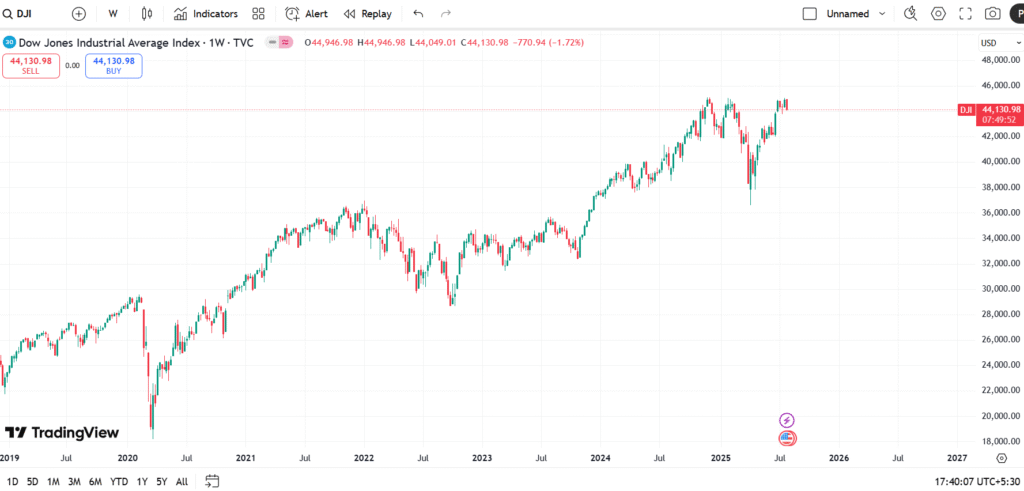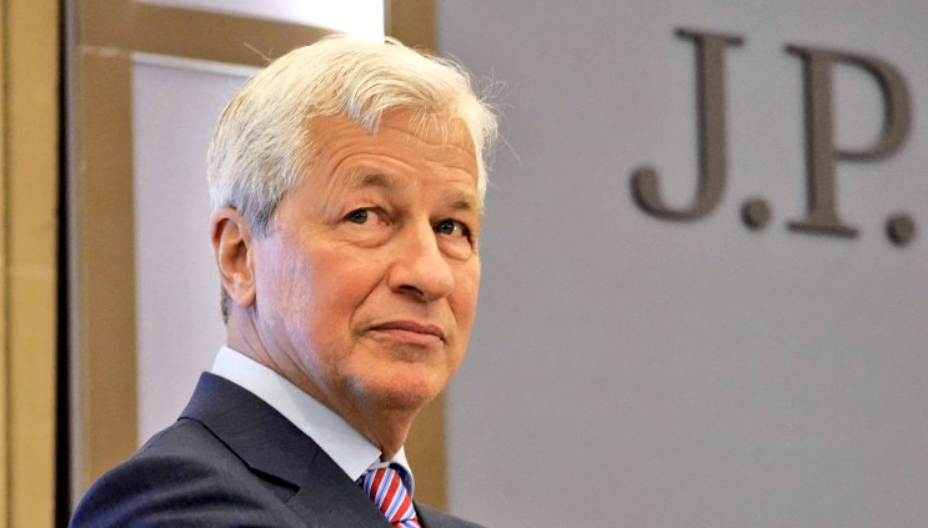JPMorgan CEO Jamie Dimon, in an exclusive interview, shared insights on the U.S. economy, predicting upcoming Fed rate cuts, supporting more measured tariffs, and highlighting AI and regulatory reform as key drivers of future growth. He also defended Fed Chair Jerome Powell and expressed optimism about productivity gains despite global uncertainties.
Jamie Dimon Predicts Fed Rate Cuts
JPMorgan Chase CEO Jamie Dimon shared his views on a number of pressing economic and financial issues. From interest rate policy and global tariffs to regulation and artificial intelligence, Dimon offered a cautiously optimistic outlook on the U.S. economy and the forces shaping the future of growth.
Defending the Fed and Predicting a Rate Cut
One of the focal points of the discussion was the U.S. Federal Reserve and the recent criticism directed at Fed Chair Jerome Powell by President Donald Trump. Dimon came to Powell’s defense, stating that “Jay Powell is a professional,” and underscoring the importance of the Fed’s independence. According to Dimon, “independence keeps interest rates lower,” citing historical evidence to support the idea that central bank autonomy contributes to economic stability.
Dimon emphasized that merely lowering short-term interest rates doesn’t always lead to the desired impact on long-term rates such as the 10-year Treasury yield. He urged caution in monetary policy decisions but ultimately signaled that the Fed is on the right path. He also pointed out that the current administration will have the opportunity to appoint a new Fed Chair in approximately eight months, which could further influence future policy.
In terms of timing, Dimon believes a rate cut is likely coming soon. He observed that the U.S. has been experiencing a “soft landing” scenario for the past four to five years. Despite inflation hovering between 2.5% and 2.7%, it has yet to reach or exceed the critical 2% threshold that would worry policymakers. As long as inflation continues its downward trend and the economy holds steady, Dimon believes a rate cut is a logical next step.
A Calmer Approach to Tariffs
With global trade tensions looming and a new round of tariffs approaching, Jamie Dimon had a more tempered view than many in the market. He noted that the latest tariff implementations are “more moderate and thoughtful and more carefully done.” He added that businesses and consumers can now handle 15% tariffs, suggesting a level of resilience in the global economy that was not present during earlier trade wars.
Jamie Dimon’s tone was significantly less alarmist than what has been common among corporate leaders when discussing trade policy. Dimon’s confidence seemed to stem from improved coordination and planning by policymakers, as well as greater preparedness by companies in the current global trade environment.

Succession Still a Mystery
While speculation continues about when Jamie Dimon might step down as CEO of JPMorgan Chase, he gave no definitive answer in his interview. He maintained his usual stance that he’ll stay on for “a couple more years,” and stressed that the bank has “a great bench” ready for future leadership. The decision, he said, will ultimately lie with the board of directors. Succession may remain an open question, but Dimon’s influence on the bank and broader financial system remains very present.
AI and Regulation: Two Engines of Future Growth
In perhaps the most forward-looking part of the interview, Dimon discussed what he sees as the two major unlocks for global and U.S. economic growth: artificial intelligence and regulatory reform.
jamie Dimon is bullish on AI, seeing it as a significant booster for productivity. While he acknowledged that some jobs will inevitably be displaced, he framed AI as a net positive for the economy due to its potential for efficiency gains. This view aligns with broader trends in the financial industry, where institutions are increasingly integrating AI into everything from customer service to risk management.
The second growth lever, according to Dimon, is the streamlining of regulation—especially in areas like permitting. He argued that overly complicated or slow regulatory processes have long been a drag on innovation and infrastructure development. By making these systems more efficient, Dimon believes the U.S. could unlock substantial growth that has been held back by bureaucratic friction.
Conclusion
Jamie Dimon’s latest remarks reflect a CEO who is cautiously optimistic but clear-eyed about the challenges ahead. Whether it’s the Federal Reserve’s monetary strategy, evolving trade policies, or transformative technologies like AI, Dimon sees opportunities for growth and resilience. His confidence in both the private sector’s adaptability and the potential of smarter regulation makes one thing clear: he’s not stepping back from the front lines of global finance anytime soon.

